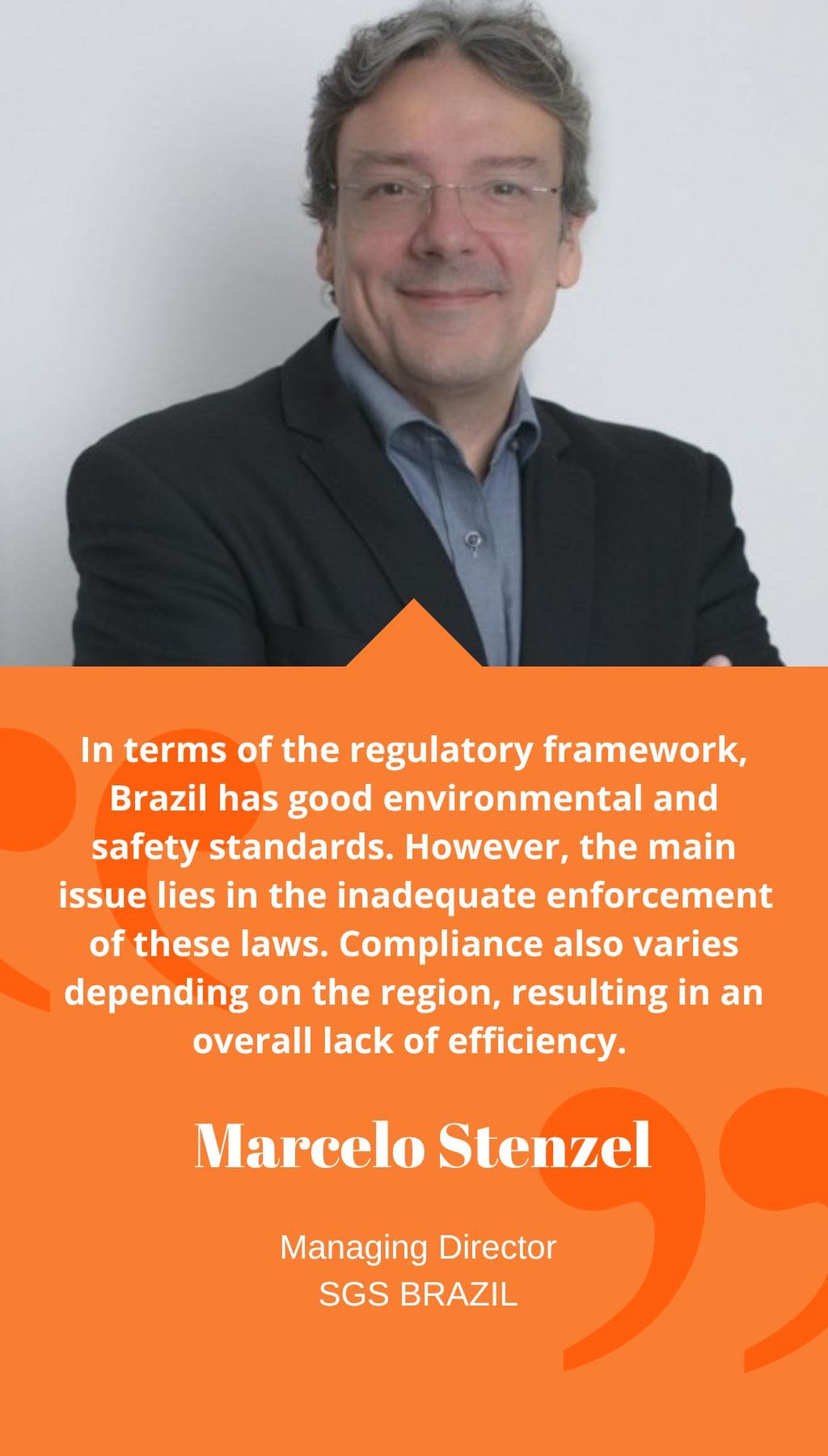
- Brazil | 16 June 2016

What are the developments of SGS in the mining and chemical industries in Brazil over the past 18 months?
The minerals area did not perform well last year, and the DNPM block on permits had a negative impact on the market. However, the mining sector still accounts for about 18% of SGS’s business in Brazil and worldwide. SGS has seen movement in the industry, which has had a much better performance in 2016 so far than in 2015. SGS provides services on the trade side in ports, carries out inspections in terms of the quality and quantity of imports and exports, and is strong in the fertilizer industry. SGS has a long-standing partnership in the minerals area with GEOSOL in Brazil and a joint venture called SGS GEOSOL, which operates a geochemical analysis laboratory and is preparing to inaugurate its first pilot plant for metallurgical processes. The chemical industry also accounts for about 20% of SGS’s revenues in Brazil, and it is well-positioned in the trading that goes on in the ethanol market.
What are the main strategic geographical areas for SGS in Brazil?
SGS currently has 30 offices and 72 locations in Brazil. The North and Northeast regions of the country are developing rapidly, with shipyards, refineries, and petrochemical complexes being constructed there. SGS is getting more business in the region and has opened a new branch in Recife this year, which targets industrial services, calibration of valves, and services related to ethanol trade. Camacari is another important strategic location for SGS, and they already have an operational laboratory running in Aratu, which is their third largest in the country. With the investments that BASF is making in Camacari, they are expecting to see even more business in the area, and SGS is planning to invest further in its Aratu operation during the second semester of this year by improving the analytical capabilities of the laboratory.
How do you view the regulatory framework and private sector initiatives regarding environmental, health, and safety standards in Brazil? Have you observed any positive legislative advancements recently?
In terms of the regulatory framework, Brazil has good environmental and safety standards. However, the main issue lies in the inadequate enforcement of these laws. Compliance also varies depending on the region, resulting in an overall lack of efficiency. One promising regulation that can help SGS is the MP 595, the new ports investment law. The country needs a sound safety culture that matches its good legislation with good enforcement. Private sector initiatives like ABIQUIM and ASSOCIQUIM’s Responsible Care and PRODIR programs comply with international quality levels, as they have the advantage of being concentrated in big industrial sites, making compliance easier to manage.
What are the core values that define SGS in the market?
SGS has high-quality standards for its laboratories and field services and a well-trained, competent personnel base that the company trains at its SGS Academy in Sao Paulo. The company has a lot of experience in the market and is well-positioned geographically, as well as in terms of its portfolio and client base. SGS has a 2016 Strategic Plan that emphasizes growth and better margins. SGS is confident that it can reach its goals by next year, and the company has already improved its operational costs and changed its portfolio to more profitable products, gaining a couple of points in margins. SGS plans to double its size in Brazil in the next four years by taking advantage of new acquisitions and expanding its service reach to new geographical areas of the country.














